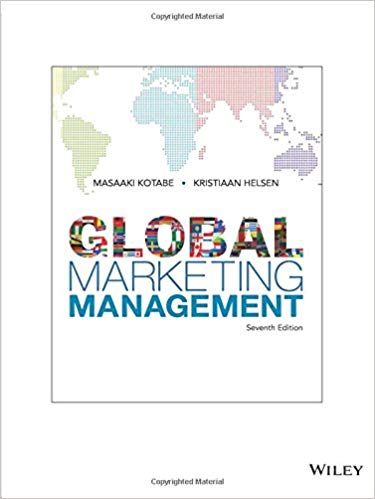Reduced trade barriers and saturation of domestic markets are two market forces that are encouraging large retail
Question:
Reduced trade barriers and saturation of domestic markets are two market forces that are encouraging large retail chains to move overseas. Large retail chains in the United States, Japan, and Europe are aggressively making forays into international markets, although there is a significant regional bias in these efforts. U.S. retail chains such as Wal-Mart have primarily focused on Canada and have now turned their focus to Mexico. Japanese retail chains such as Aeon and Daimaru have made significant inroads into Southeast Asia, while Western European chains such as Julius Meinl (Austria), Promodes (France), Ahold (The Netherlands), and TESCO (U.K) are diversifying into Eastern Europe and other countries within Europe. Industry analysts point out that this internationalization of retail business will significantly alter the nature of competition. Significant rationalization through acquisitions of retail businesses is bound to take place. The verdict on the expected effects of this rationalization and increased competition on specialty chains is still unclear. What would you predict the retail business to look like 10 years from now? What would be the role of specialty stores and specialty chains?
Step by Step Answer:

Global Marketing Management
ISBN: 978-1119398332
7th edition
Authors: Masaaki Kotabe, Kristiaan Helsen





